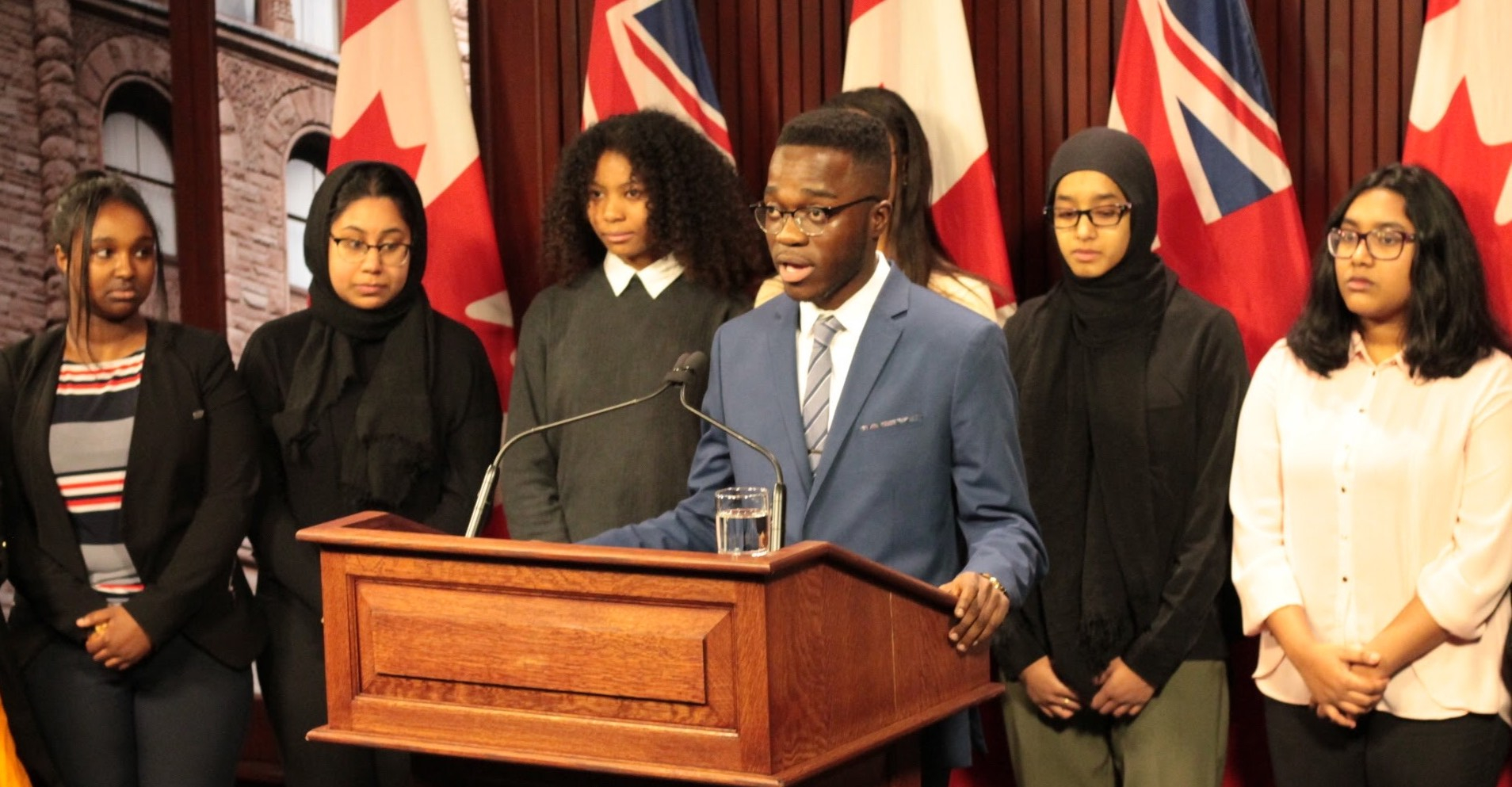Student Resources
Take Action
After you complete UrbanPlan, we hope you see that you have a voice in shaping your community. Hear from some community builders in this video and then explore how high school students have influenced their neighborhoods and how you can too!
Explores Ways You Can Shape Your Community

Students at Bethesda-Chevy Chase High School in Maryland worked with their teacher after UrbanPlan to select a community issue to engage with in their government class. Students researched and wrote a letter to their County Representative to share concern about a tower proposed for the parking lot of the historic Farm Women’s Cooperative Market building in downtown Bethesda.

Some cities have youth advocacy bodies organized by the local government to give young people a voice in civic issues. Established in 1998 by Toronto City Council, the Toronto Youth Cabinet is the official youth advocacy body to the city. This youth-led organization promotes youth participation in municipal affairs and policy development. TYC membership is open to youth between the ages of 13-24 who live, work or learn in the City of Toronto. Transit, Housing, and Urban Health are some of the topic areas that the Youth Cabinet is focused on via their youth representatives and working groups. Learn more.
Council meetings are public forums where local officials discuss issues or bills that will benefit and/or impact the city and its residents. If you have any concerns about an issue in your city, you can express them during the public comment portion of the meeting (just research any guidelines first). Brogan, now a high schooler, did this in Seattle when he was a 10-year-old skater worried his favorite skate park was going to be demolished. In his testimony about SeaSk8, he asked the city to keep the skate park in place instead of demolishing and relocating it for parking for the the Key Arena. Ultimately, it was demolished and a new SeaSk8 opened in 2021.
After Trisha did UrbanPlan at Punahou School in Honolulu, she started a club focused on Urban Planning, Design, and Sustainability issues. She and her classmates did research projects, presented on topics that are important in their city, and brainstormed ways to take action and help improve their community. Trisha is now studying environmental studies, minoring in urban studies, at Tufts University.

Many cities and communities hold free or low-cost classes or multi-week programs for citizens to learn more about land use issues and other civic issues and the role they can play in advocating for outcomes that will benefit their community. Some require attendees to be 18, but reach out the organizers to make the case for high school students to attend. A well-regarded model is the Philadelphia Citizens Planning Institute. Courses cover urban planning, zoning, how to weigh in on development proposals. Learn more.
Dan Reed started a neighborhood blog when they were in high school about urban planning issues facing Montgomery County in the DC suburbs. They also started a Yahoo Group for civic activism and worte for their high school newspaper about the county. Dan went on to study architecture and English in undergrad and urban planning in grad school. Now, Dan balances their professional life as a planner with their civic activism which takes place on Twitter, their blog, podcasts, and newspaper articles.
When Chloe, a seventh grader at Glenbrook Middle School in New Westminster, BC, could not find a safe and fun bike route to school, she decided to take action. Chloe took her concerns to the City and the school, and they listened. Two local engagement and planning organizations got involved to help Chloe and her friends bring her creative placemaking/traffic calming solutions to life.

Mary participated in UrbanPlan at Washington-Liberty High School in Arlington, VA, then enrolled at James Madison University in Harrisonburg. In her freshman year, she joined the Canterbury Episcopal Campus Ministry, which functions as a club near campus for students. In November 2019, the club found out that JMU had bought their property and the Ministry needed to build a new building and church in a new location (JMU purchased the ministry house over market price and traded them a parcel at below market rate one block away). The Ministry needed student representatives to weigh in on the design and development process and Mary was selected as the freshman representative. She quickly realized that the knowledge of how buildings fit into a neighborhood, engage pedestrians, and how the process solicits feedback from stakeholders that she learned from UrbanPlan were invaluable as she represented the needs of her student peers.